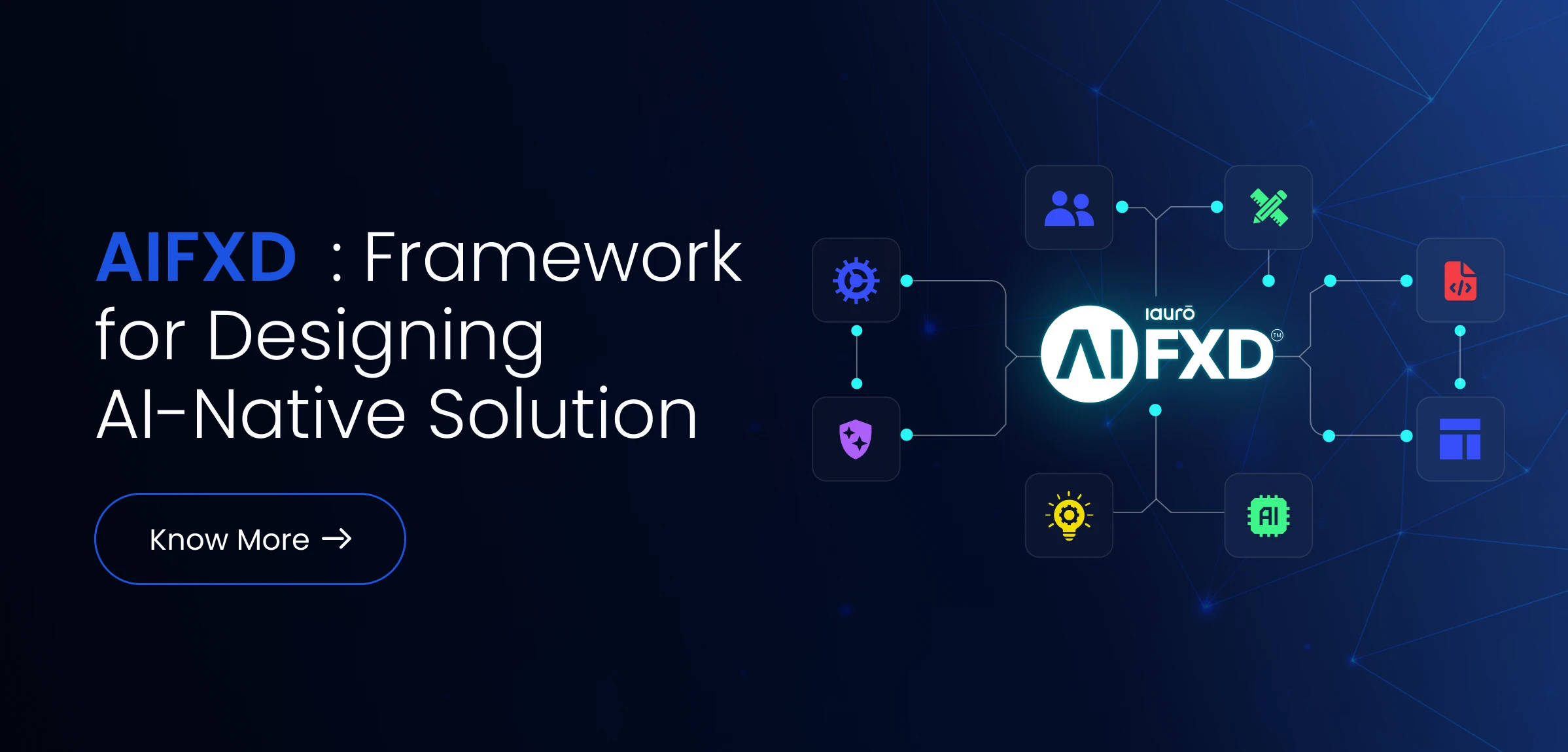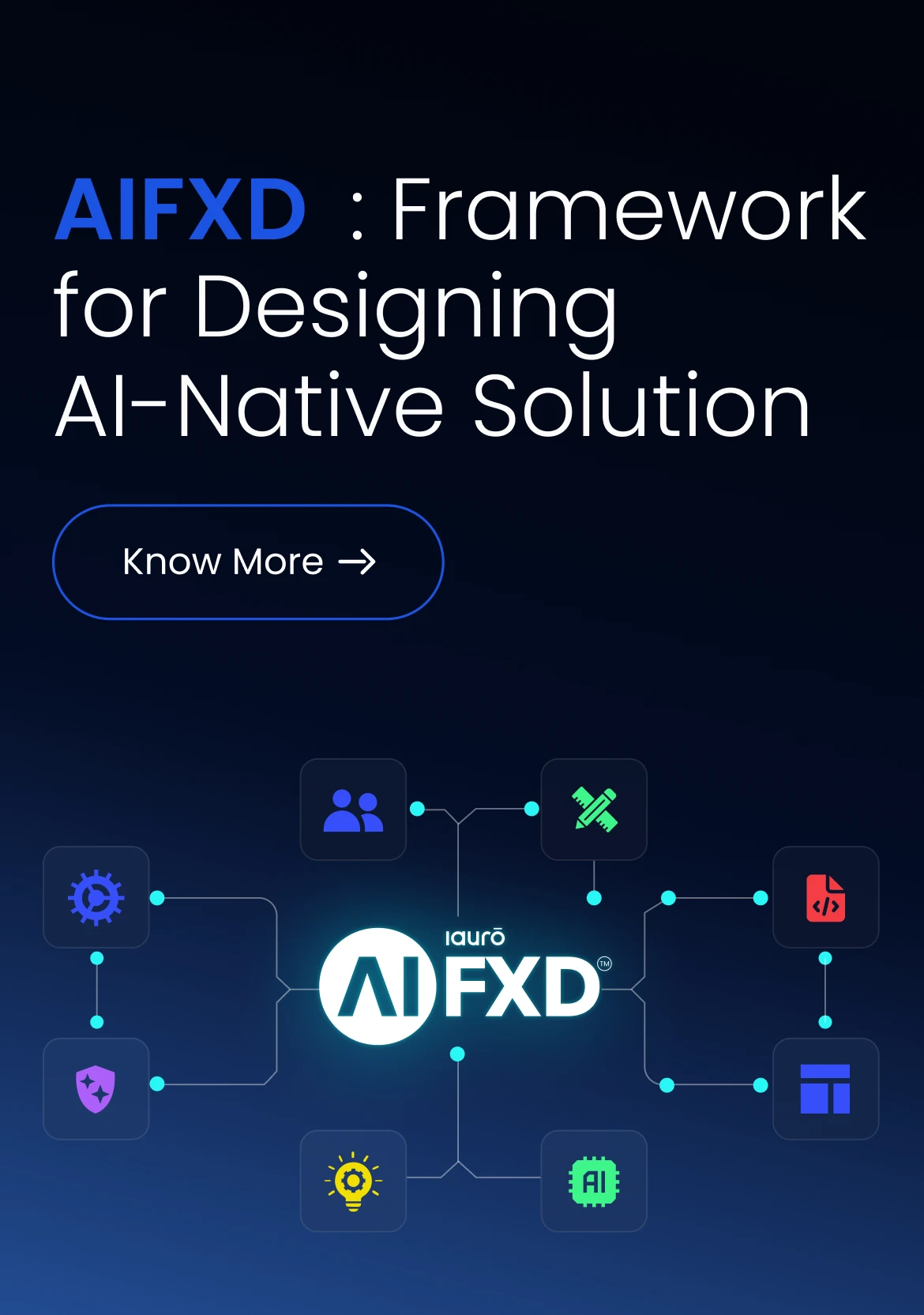The Evolution Of Data Maturity : Moving From Data-Driven To Data-Conscious Organizations

Understanding the Shift: Data-Driven vs. Data-Conscious Approaches
1. Decision-Making Process:
Data-Driven:
Relies heavily on quantitative data, often prioritizing metrics and analytics over qualitative insights. This can lead to decisions that are technically sound but lack contextual understanding.
Data-Conscious:
Integrates quantitative data with qualitative insights, ethical considerations, and human judgment, resulting in more holistic and contextually appropriate decisions.
2. Data Utilization:
Data-Driven:
Focuses on the volume of data, operating under the assumption that more data equates to better insights. This can lead to information overload and analysis paralysis.
Data-Conscious:
Prioritizes data quality over quantity, emphasizing the relevance, accuracy, and timeliness of data to derive meaningful insights.
3. Ethical Considerations:
Data-Driven:
May overlook ethical implications, such as data privacy concerns or potential biases in data collection and analysis.
Data-Conscious:
Proactively addresses ethical issues, ensuring data practices comply with legal standards and align with societal values.
4. Organizational Culture:
Data-Driven:
Encourages a culture where data is the primary driver of decisions, potentially marginalizing human intuition and experience.
Data-Conscious:
Fosters a balanced culture that values data as a critical tool while recognizing the indispensable role of human expertise and ethical judgment.
Challenges in Data Management and Utilization
1. Data Silos:
Challenge:
Data silos occur when data is isolated within specific departments or systems, hindering cross-functional collaboration and comprehensive analysis. This fragmentation can lead to inconsistent insights and impede strategic decision-making.
Solution:
Implementing integrated data platforms and promoting interdepartmental communication can break down these silos, facilitating a unified view of data across the organization. Centralizing data involves consolidating information from various sources into a single, accessible repository, enhancing efficiency and enabling real-time analysis. (Kanerika)
2. Data Quality Issues:
Challenge:
Poor data quality, characterized by inaccuracies, inconsistencies, and outdated information, can lead to erroneous insights and flawed decision-making. Ensuring data accuracy is crucial for effective utilization, as decisions based on faulty data can have detrimental consequences.
Solution:
Establishing robust data governance frameworks that include data validation processes, regular audits, and standardized data entry protocols can significantly enhance data quality. Data validation processes are implemented to ensure data consistency and reliability, which are essential for training AI algorithms and producing accurate, actionable insights. (Forbes)
3. Regulatory Compliance:
Challenge:
Navigating the complex landscape of data protection regulations, such as GDPR and CCPA, requires meticulous attention to data handling practices. Non-compliance can result in severe legal and financial repercussions, as well as damage to the organization's reputation.
Solution:
Developing comprehensive data governance policies that ensure compliance with relevant regulations is essential. This includes implementing data privacy and consent controls that outline how data should be accessed and used within the organization. (IBM Insights)
4. Cultural Resistance:
Challenge:
Shifting to a data-conscious culture may encounter resistance from employees accustomed to traditional decision-making processes. This resistance can stem from a lack of data literacy or fear of change, hindering the adoption of new data practices.
Solution:
Investing in data literacy programs and fostering an organizational culture that values data-driven insights while respecting human judgment can facilitate this transition. Building a data culture involves encouraging collaboration, making data literacy a core skill for all employees, and embedding data into every part of the business. (Data Culture Hive Mind)
5. Cost vs. Benefit Perception:
Challenge:
Many organizations are hesitant to invest heavily in data-conscious strategies due to unclear ROI. Leaders often question whether the benefits justify the initial costs of revamping systems, training employees, and establishing governance frameworks.
Solution:
Demonstrating value through pilot projects and phased implementation can address these concerns. By starting small and scaling based on measurable outcomes, organizations can build confidence in the approach while minimizing risk.
The Role of AI in Fostering Data-Consciousness
1. Enhanced Decision-Making:
AI algorithms can process vast datasets to identify patterns, trends, and anomalies that may elude human analysis. By providing data-driven insights, AI supports informed decision-making that integrates both data analysis and human judgment.
For instance, AI can help predict outcomes using different data points like project size, contract type, and project management competence, thereby optimizing project investment value. (Forbes)
2. Ethical Data Use:
AI systems can be designed to detect and mitigate biases in data, ensuring that analyses and subsequent decisions are fair and unbiased. This capability is crucial for maintaining ethical standards in data utilization and fostering trust in AI-driven insights.
3. Operational Efficiency:
AI-driven automation can streamline data management processes, significantly reducing manual effort and errors while improving overall efficiency. For example, AI tools can automatically cleanse and validate data, ensuring its accuracy and relevance before it is used for analysis.
4. Real-Time Insights:
AI empowers organizations with real-time analytics capabilities. For example, predictive maintenance in manufacturing uses AI to analyze sensor data, identifying potential equipment failures before they occur. This proactive approach saves costs and minimizes downtime.
5. Augmentation of Human Decision-Making:
AI acts as a decision augmentation tool, providing scenarios, projections, and risk assessments that allow leaders to make better-informed strategic decisions. This goes beyond automation, emphasizing collaboration between AI systems and human expertise.

The Future of Data-Consciousness
1. Integrated Data Ecosystems:
Organizations will move towards creating seamless data ecosystems where information flows freely across departments, systems, and platforms.
Advanced interoperability standards and cloud-based solutions will play a critical role in eliminating data silos. Real-time data sharing and collaborative analytics will become the norm, enabling more dynamic and responsive decision-making processes.
2. Emphasis on Data Ethics:
Ethical data practices will transition from being a regulatory requirement to a core organizational value. Businesses will increasingly invest in ethical AI systems and implement governance frameworks to ensure transparency and accountability in data handling.
Technologies such as blockchain may play a pivotal role in ensuring data transparency and security.
3. AI-Powered Democratization of Data:
The future will see a democratization of data, where non-technical users can access and leverage data insights without requiring specialized skills. User-friendly AI tools and natural language processing interfaces will empower employees across all functions to engage with data intuitively.
4. Sustainable Data Practices:
As concerns about environmental sustainability grow, organizations will adopt greener approaches to data storage and processing. Techniques such as edge computing, energy-efficient data centers, and optimized algorithms will reduce the carbon footprint associated with data operations.
Organizations may also invest in data-sharing alliances to maximize resource efficiency and reduce redundancies.
5. Hyper-Personalization and Ethical Boundaries:
AI-driven hyper-personalization will redefine customer experiences, but organizations will need to establish ethical boundaries to avoid invasive practices. Striking the right balance between personalization and privacy will be a defining challenge.
Conclusion:

Taking one liner ideas to make impactful business outcomes.
1. Decision-Making Process:
Data-Driven:
Relies heavily on quantitative data, often prioritizing metrics and analytics over qualitative insights. This can lead to decisions that are technically sound but lack contextual understanding.
Data-Conscious:
Integrates quantitative data with qualitative insights, ethical considerations, and human judgment, resulting in more holistic and contextually appropriate decisions.
2. Data Utilization:
Data-Driven:
Focuses on the volume of data, operating under the assumption that more data equates to better insights. This can lead to information overload and analysis paralysis.
Data-Conscious:
Prioritizes data quality over quantity, emphasizing the relevance, accuracy, and timeliness of data to derive meaningful insights.
3. Ethical Considerations:
Data-Driven:
May overlook ethical implications, such as data privacy concerns or potential biases in data collection and analysis.
Data-Conscious:
Proactively addresses ethical issues, ensuring data practices comply with legal standards and align with societal values.
4. Organizational Culture:
Data-Driven:
Encourages a culture where data is the primary driver of decisions, potentially marginalizing human intuition and experience.
Data-Conscious:
Fosters a balanced culture that values data as a critical tool while recognizing the indispensable role of human expertise and ethical judgment.
1. Data Silos:
Challenge:
Data silos occur when data is isolated within specific departments or systems, hindering cross-functional collaboration and comprehensive analysis. This fragmentation can lead to inconsistent insights and impede strategic decision-making.
Solution:
Implementing integrated data platforms and promoting interdepartmental communication can break down these silos, facilitating a unified view of data across the organization. Centralizing data involves consolidating information from various sources into a single, accessible repository, enhancing efficiency and enabling real-time analysis. (Kanerika)
2. Data Quality Issues:
Challenge:
Poor data quality, characterized by inaccuracies, inconsistencies, and outdated information, can lead to erroneous insights and flawed decision-making. Ensuring data accuracy is crucial for effective utilization, as decisions based on faulty data can have detrimental consequences.
Solution:
Establishing robust data governance frameworks that include data validation processes, regular audits, and standardized data entry protocols can significantly enhance data quality. Data validation processes are implemented to ensure data consistency and reliability, which are essential for training AI algorithms and producing accurate, actionable insights. (Forbes)
3. Regulatory Compliance:
Challenge:
Navigating the complex landscape of data protection regulations, such as GDPR and CCPA, requires meticulous attention to data handling practices. Non-compliance can result in severe legal and financial repercussions, as well as damage to the organization's reputation.
Solution:
Developing comprehensive data governance policies that ensure compliance with relevant regulations is essential. This includes implementing data privacy and consent controls that outline how data should be accessed and used within the organization. (IBM Insights)
4. Cultural Resistance:
Challenge:
Shifting to a data-conscious culture may encounter resistance from employees accustomed to traditional decision-making processes. This resistance can stem from a lack of data literacy or fear of change, hindering the adoption of new data practices.
Solution:
Investing in data literacy programs and fostering an organizational culture that values data-driven insights while respecting human judgment can facilitate this transition. Building a data culture involves encouraging collaboration, making data literacy a core skill for all employees, and embedding data into every part of the business. (Data Culture Hive Mind)
5. Cost vs. Benefit Perception:
Challenge:
Many organizations are hesitant to invest heavily in data-conscious strategies due to unclear ROI. Leaders often question whether the benefits justify the initial costs of revamping systems, training employees, and establishing governance frameworks.
Solution:
Demonstrating value through pilot projects and phased implementation can address these concerns. By starting small and scaling based on measurable outcomes, organizations can build confidence in the approach while minimizing risk.
1. Enhanced Decision-Making:
AI algorithms can process vast datasets to identify patterns, trends, and anomalies that may elude human analysis. By providing data-driven insights, AI supports informed decision-making that integrates both data analysis and human judgment.
For instance, AI can help predict outcomes using different data points like project size, contract type, and project management competence, thereby optimizing project investment value. (Forbes)
2. Ethical Data Use:
AI systems can be designed to detect and mitigate biases in data, ensuring that analyses and subsequent decisions are fair and unbiased. This capability is crucial for maintaining ethical standards in data utilization and fostering trust in AI-driven insights.
3.Operational Efficiency:
AI-driven automation can streamline data management processes, significantly reducing manual effort and errors while improving overall efficiency. For example, AI tools can automatically cleanse and validate data, ensuring its accuracy and relevance before it is used for analysis.
4. Real-Time Insights:
AI empowers organizations with real-time analytics capabilities. For example, predictive maintenance in manufacturing uses AI to analyze sensor data, identifying potential equipment failures before they occur. This proactive approach saves costs and minimizes downtime.
5. Augmentation of Human Decision-Making:
AI acts as a decision augmentation tool, providing scenarios, projections, and risk assessments that allow leaders to make better-informed strategic decisions. This goes beyond automation, emphasizing collaboration between AI systems and human expertise.

1. Integrated Data Ecosystems:
Organizations will move towards creating seamless data ecosystems where information flows freely across departments, systems, and platforms.
Advanced interoperability standards and cloud-based solutions will play a critical role in eliminating data silos. Real-time data sharing and collaborative analytics will become the norm, enabling more dynamic and responsive decision-making processes.
2. Emphasis on Data Ethics:
Ethical data practices will transition from being a regulatory requirement to a core organizational value. Businesses will increasingly invest in ethical AI systems and implement governance frameworks to ensure transparency and accountability in data handling.
Technologies such as blockchain may play a pivotal role in ensuring data transparency and security.
3. AI-Powered Democratization of Data:
The future will see a democratization of data, where non-technical users can access and leverage data insights without requiring specialized skills. User-friendly AI tools and natural language processing interfaces will empower employees across all functions to engage with data intuitively.
4. Sustainable Data Practices:
As concerns about environmental sustainability grow, organizations will adopt greener approaches to data storage and processing. Techniques such as edge computing, energy-efficient data centers, and optimized algorithms will reduce the carbon footprint associated with data operations.
Organizations may also invest in data-sharing alliances to maximize resource efficiency and reduce redundancies.
5. Hyper-Personalization and Ethical Boundaries:
AI-driven hyper-personalization will redefine customer experiences, but organizations will need to establish ethical boundaries to avoid invasive practices. Striking the right balance between personalization and privacy will be a defining challenge.


